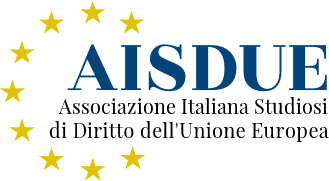Abstract (ITA)
In materia di riconoscimento e circolazione degli status personali e familiari, dottrina, prassi e giurisprudenza si stanno allineando nel senso di una sempre maggiore semplificazione, sulla scorta del rilievo che questo tema riveste nel contesto dei diritti fondamentali della persona. A livello di Unione, la giurisprudenza della Corte di giustizia (v. Coman e Pancharevo) ha aperto ad un particolare tipo di riconoscimento, ad effetti limitati, che ha lo scopo di garantire il dispiegarsi dei diritti di circolazione e soggiorno previsti dai Trattati. Rimangono, tuttavia, alcune questioni aperte. La prima è quella della potenziale applicabilità dei principi sanciti in Pancharevo rispetto a situazioni familiari costituitesi a seguito di maternità surrogata, là dove, rispetto ad una filiazione avvenuta tramite fecondazione eterologa, viene in rilievo con maggiore forza il tema della possibile violazione dell’ordine pubblico. La seconda, di particolare attualità, attiene al possibile rilievo del diritto dell’Unione europea rispetto alla rettifica retroattiva di atti di nascita formati in Italia, indicanti due persone dello stesso sesso come genitori di un minore.
Abstract (ENG)
In the area of recognition and circulation of personal and family statuses, scholars, practicioners and the jurisprudence are aligning in the direction of increasing simplification, based on the importance of this issue in the context of the fundamental rights of the individual. At the level of the Union, the caselaw of the Court of Justice (see Coman and Pancharevo) has opened up a particular type of recognition, with limited effects, which is intended to ensure the unfolding of the rights of movement and residence provided by the Treaties. A number of open questions remain, however. The first is that of the potential applicability of the principles enshrined in Pancharevo to family situations constituted through surrogacy, where, with respect to a filiation that took place through heterologous fertilization, the issue of the possible violation of public order comes into sharper relief. The second, very topical, concerns the possible relevance of European Union law with respect to the retroactive rectification of birth certificates formed in Italy, indicating two persons of the same sex as parents of a minor.
